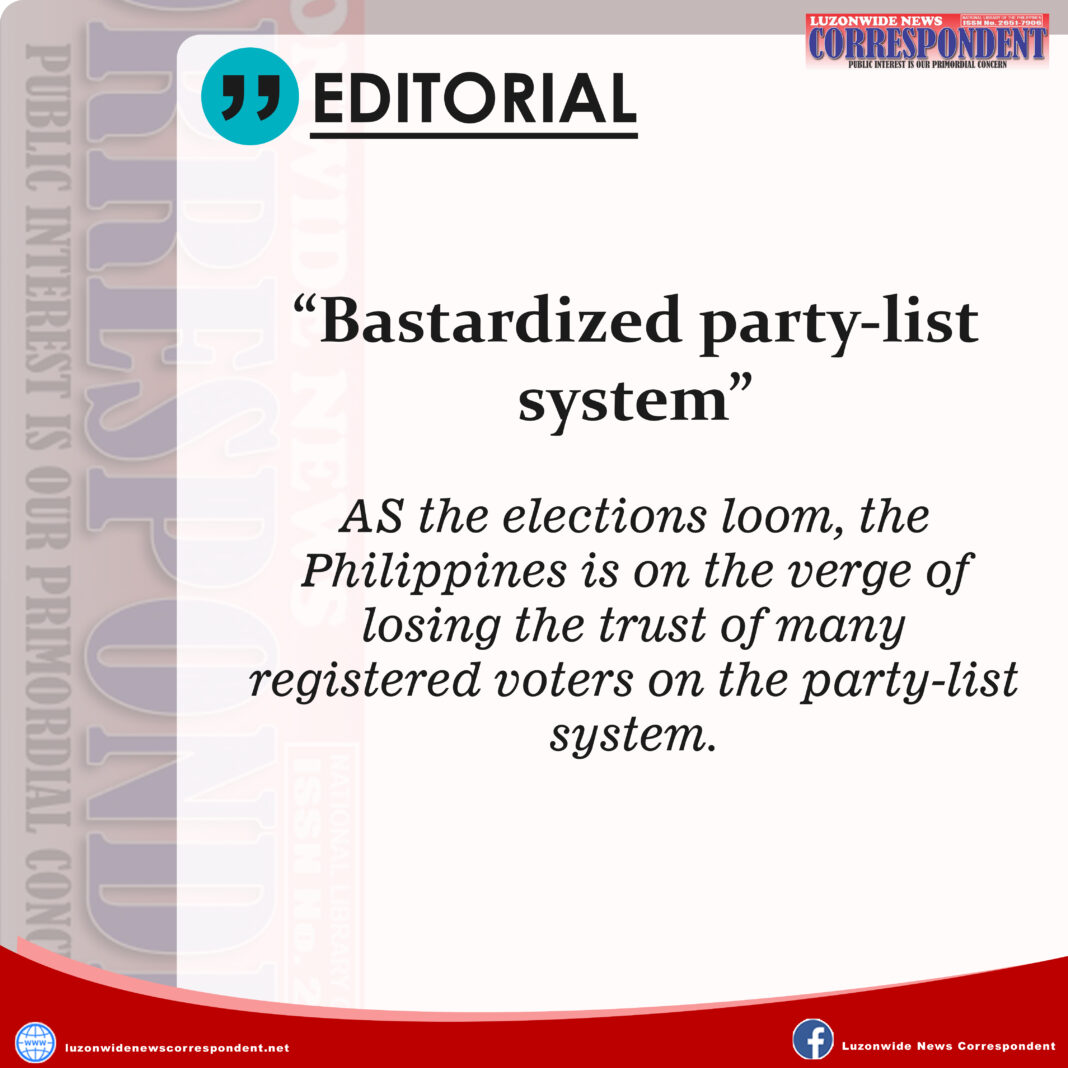Published in its print edition on April 26 – May 2, 2025
AS the elections loom, the Philippines is on the verge of losing the trust of many registered voters on the party-list system.
The continuing bastardization of this party-list system is putting the moneyed and influenced personalities, in the guise of advocacy for the underrepresented and the marginalized, as representatives in an indirect way.
So far, the House of Representatives is currently having 317 seats for district representatives and party-list congressmen. Under Section 5, Article VI of the Constitution and the Party-List System Act, party-list representatives shall constitute 20-percent of the total members of the House including those under the party-list.
Hence, at least 63 seats are given to party-list representatives whose winners are mostly the well-off and influential ones.
The rule says that parties that receive at least 2% of the total votes cast for the party-list system shall be entitled to one seat each, while those that garner more than 2% of the votes shall be entitled to additional seats in proportion to their total number of votes.
The party-list group with the highest number of votes may get three seats. If party-list groups with 2% and higher votes are not able to fill up all the 63 seats, the next-in-line groups with the closest vote share to 2% will get to secure one seat each until all party-list seats are filled.
Each party-list representative shall serve to a three-year term.
The Party-list System Act, which apparently has a good aim to promote proportional representation in the election of representatives to the House of Representatives, is not really serving its noble and real purpose.
It aims to enable Filipinos belonging to the marginalized and underrepresented sectors, organizations, and parties, and those who lack well-defined political constituencies but who could contribute to the formulation and enactment of appropriate legislation to become members of the House.
Yet, it has not been happening.
As marginalized and underrepresented, the representatives should belong to marginalized and underrepresented sectors include labor, peasant, fisherfolk, urban poor, indigenous cultural communities, handicapped, veterans, and overseas workers. Then came a Supreme Court decision that a party-list which has an advocacy on such sectors may run.
This bastardization is “killing” the true essence of the party-list.
The need to amend or even to revise the law is imminent now.#







